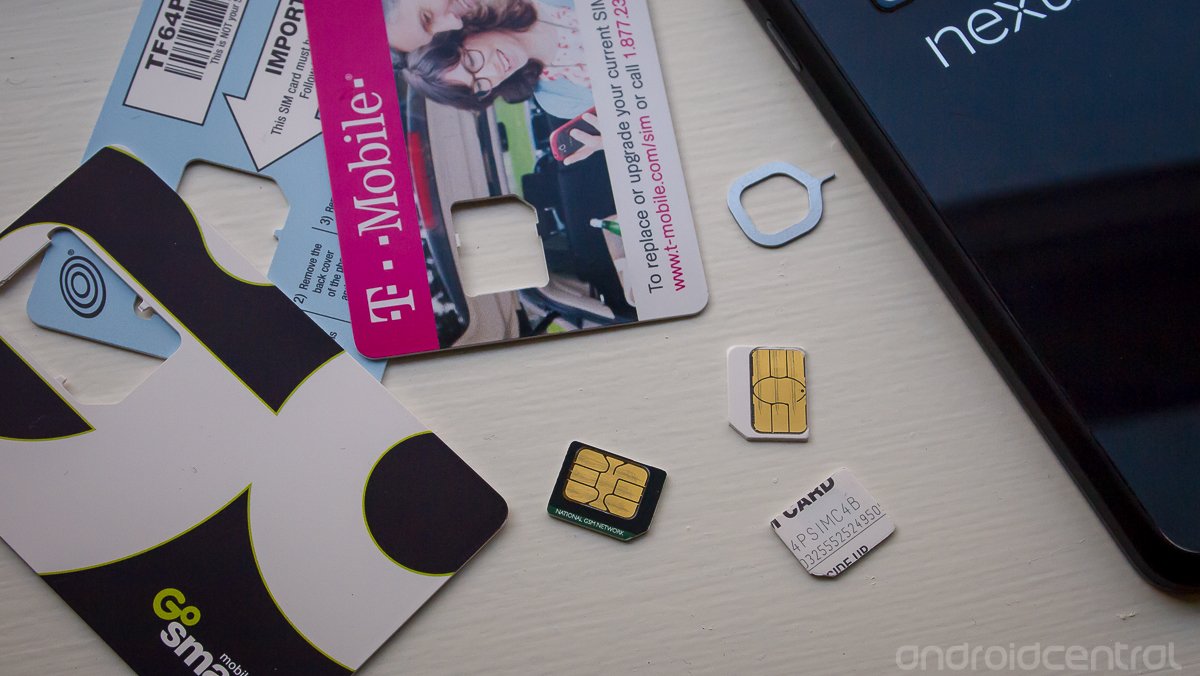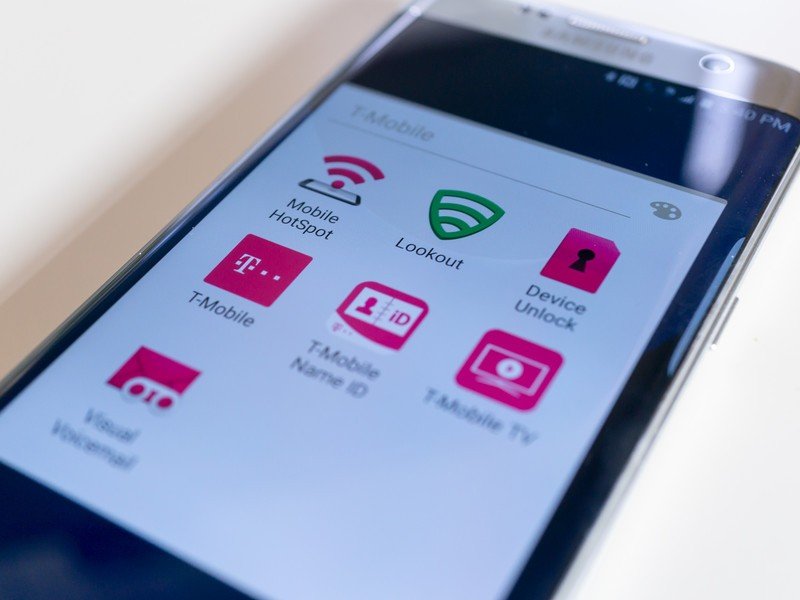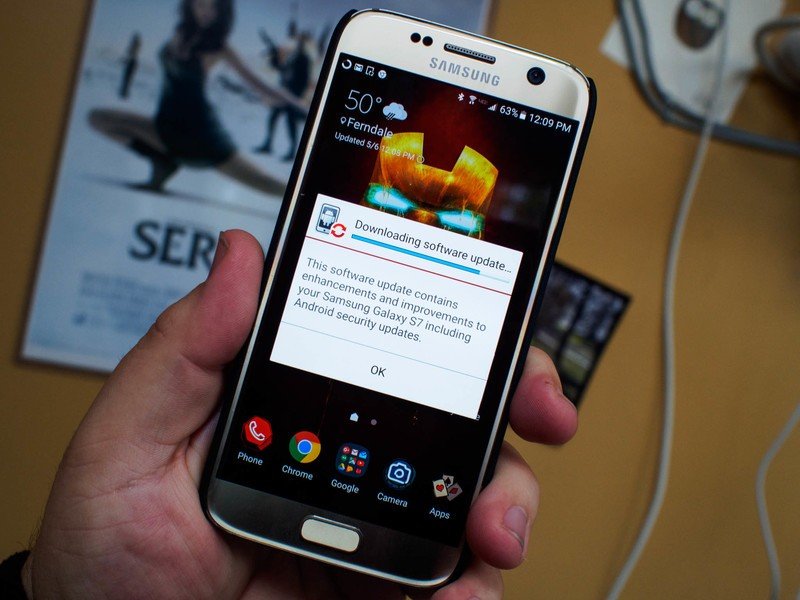What big carriers won't tell you about prepaid alternative carriers

There are plenty of reasons to use an MVNO instead of one of the four major network providers here in the U.S. We have talked about many of them and most center on the service to cost ratio and how an MVNO can usually be a better value for most people. We think that value is a big consideration — who doesn't love paying less without getting less?
There are a few little things that carriers won't mention about MVNOs that can make using one even more attractive. Here are a few things you won't hear about when you see a commercial from the Big Four.
These are the cheapest data plans you can buy in the U.S.
They are MVNOs themselves
All four carriers have at least one MVNO that is part of their corporate entity. They can incorporate them individually and appoint someone else as a company CEO, but when you follow the money back to the bank it's going to the same account in the end.
All four carriers run one or more MVNOs.
They have several reasons for doing this. One is that if they didn't, they would risk losing more customers to smaller companies that operate independently as MVNOs. For example, Virgin Mobile USA and Boost Mobile are wholly owned subsidiaries of the Sprint Corporation. Together they have about 11 million subscribers. Sprint can't afford to lose revenue from 11 million accounts, and the revenue from Boost and Virgin USA goes directly to Sprint.
What is an alternative carrier?
Sprint also has its own Sprint-branded prepaid service. It doesn't try to hide the fact that it owns Boost or Virgin USA, but it lets them act as if they were their own MVNO because they can offer different plans at different prices marketed to all types of customers. You can feel good about saving money on Boost instead of paying more for a Sprint plan, even though you are on a Sprint-owned plan and network.
Get the latest news from Android Central, your trusted companion in the world of Android
Sprint counts everyone with a Sprint postpaid plan and one of its MVNO subscribers in its subscriber count every quarter because it's all the same company. It sees the value in an MVNO for the same reasons we see the value: to get more for less. It's not just Sprint: AT&T and T-Mobile both run their own MVNOs for the very same reasons. (Verizon offers prepaid service, but only as part of its main brand. It also sells its service to other alternative carriers.)

You are paying for things you don't need or use
If you have a post-paid account with one of the four major operators in the U.S. you are paying for things you don't use. You don't use them because you don't need them.
Customer service, international "extras" and other plan perks aren't free. Neither is the cost to develop and maintain extra services the companies offer like live TV broadcasts or cloud storage accounts or NASCAR sponsorships. The cost of all these things, as well as corporate facilities and accountants and lawyers, come from you and me. It's part of our monthly bill and a big reason why you pay more for a data plan than you would through an MVNO. Many of us make use of some of these services, but think about the ones you don't use and are still paying for.
An MVNO buys bulk data from these same carriers at a highly discounted rate. It can pass those savings on to you because it isn't building billion-dollar corporate headquarters or paying millions of dollars to be an internet television service provider. It deals in phone calls and data plans. That's what it sells you and that's what you are paying for.
Hardly anyone needs huge data plans
Someone is going to comment that he use hundreds of gigabytes per month on his unlimited data plan. I'm sure that's true, and it's great that there's an option to do it. But the simple fact is that most of us don't use very much data, and the smaller 1GB or 2GB plans are all we would ever need. We still want to help save you money if you need unlimited data, though.
Which unlimited plan should you buy: AT&T, Sprint, T-Mobile or Verizon?
This doesn't diminish anyone's need for 100GB of data per month. If you need that much, stick with one of the Big Four and their unlimited plans. But if you don't need a shared family plan with 10GB of data for your family, you don't have to pay for it. An alternative carrier usually offers small data packages or services that can be maintained by paying for calls and texts that you can top up with data as you need it. This can mean substantial savings over the course of a year compared to even the smallest "smartphone" data package from a postpaid carrier.
They use the same wires as an MVNO
T-Mobile (for example) has the same network footprint as MetroPCS (which is an MVNO that's really part of T-Mobile like we talked about earlier) or any other MVNO that uses T-Mobile's network. It doesn't split the network into different areas when it sells wholesale data to another company.
A carrier only has one network and it's the one it also sells to MVNOs.
If a carrier tells you it has a bigger network footprint that an MVNO that uses its network, it's because it is paying another carrier to use its data network in some places. This is more common that you think, and even the U.S. telecom giants that are AT&T and Verizon have agreements with other carriers for places where their networks needs some help. If you are in one of these areas, some features of the plan you pay for aren't going to work, and your data speeds may be diminished, but it's still better than a dead spot. And cheaper than network expansion.
This isn't a bad thing. Plenty of people travel all over the place and need service to follow them, and roaming agreements between companies help make that happen. But for the majority of its network coverage map, the service and data connection is the same as an MVNO that uses its network.
They love MVNOs as much as we do
Selling bulk data to an MVNO is very profitable for a big carrier. It doesn't need to do anything extra when selling wholesale data to an MVNO so it means it is getting more (money) for less (work).
Big carriers have to maintain the network for their own customers. They have to expand the network for their own customers. They have to improve the network for their own customers. These are real costs, and selling data to an MVNO helps the bottom line because there isn't anything they need to do after they sell it.
They can even make more money by offering things like billing services and in-store sales for an MVNO as an extra service. And after all that, your MVNO can still offer service cheaper than the company it is buying it from. Makes one wonder just how much profit is in every megabyte of data the Big Four sells, doesn't it?

An MVNO isn't making deals with hardware companies
At least not as many deals and not the same kinds of deals.
For a long time, AT&T was very interested in getting you to buy an iPhone every year. That's because it had a special deal with Apple, and for that deal to be profitable it had to sell a whole lot of iPhones. That's great for Apple and AT&T, but not so great for you and me.
A Galaxy S7 works great on an MVNO, but nobody is pressuring you to buy one.
That hasn't changed now that everyone can use a Galaxy S7 on any network (it's awesome on an MVNO, by the way!). Apple, Samsung, LG and everyone else works with the major carriers to find ways to make even more money, and employees are directed to do certain things to help make it happen.
When you sign up for service from an alternative carrier, you might find a deal on an older model phone or a refurbished phone, but nobody is there to steer you towards a specific brand or model. MVNOs are interested in selling you good, cheap phone service. Not the next big thing from Samsung or Apple.
And that next big thing from Samsung or Apple will work just fine if it's what you really want.
Alternative carriers are businesses and designed to make money. They aren't out to be our friends or to operate at a loss. But there are plenty of reasons why they can make money by selling the same service for a lot less, and the Big Four carriers don't really want to talk about them.
Updated June 2017: Made sure all the information was still great and current.

Jerry is an amateur woodworker and struggling shade tree mechanic. There's nothing he can't take apart, but many things he can't reassemble. You'll find him writing and speaking his loud opinion on Android Central and occasionally on Threads.
